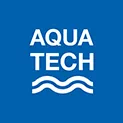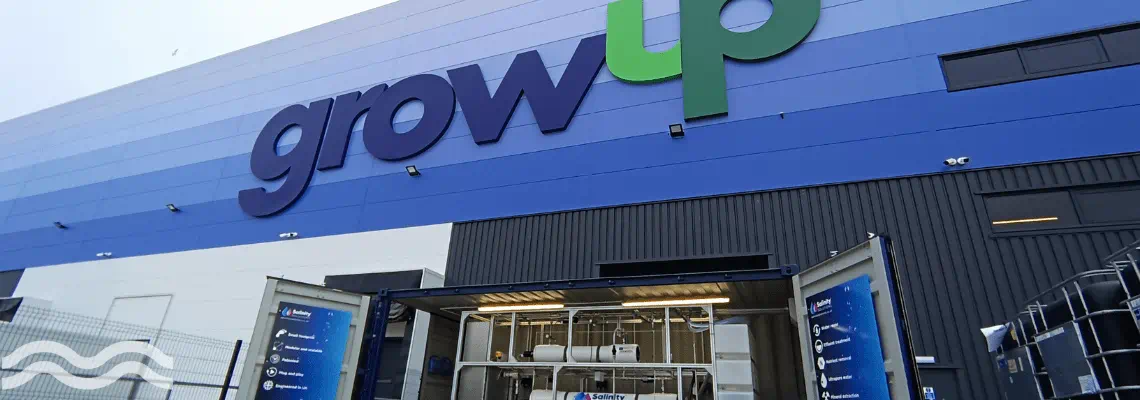A farm group using vertical farming practices to grow salad vegetables for the wholesale market is using water treated by a batch reverse osmosis (RO) process to improve water quality and availability at reduced energy levels.
Improving water availability in agriculture
According to the World Economic Forum, the controlled environments used in vertical farming use up to 98 per cent less water than traditional agriculture. However, treatment of water in vertical farming systems has traditionally used a lot of energy.
Grow Up Farms grows salad vegetables on its five-acre Pepperness site. Despite the being a small farm, it has the growing capacity of a 1000-acre site thanks to its use of vertical farming.
Recognising the rising global demand for water, Grow Up Farms’ impact director, Gillon Dobie, explained: “Producing more food with less resources is central to our philosophy, no more so than when it comes to our water use. We’re already making great strides to conserve this precious resource at Pepperness but we’re striving to get even better.”
As well as water used for irrigation, the system also treats and reuses water from rainfall and from cleaning processes.
So good they treated it twice
Explaining why the farm chose to partner with Salinity Solutions, Dobie told national broadcaster, BBC: “Water treatment consumes 4 per cent of the world’s total electricity production and conventional reverse osmosis systems are traditionally energy intensive.
“Crucially, Salinity Solutions’ technology uses half the energy of existing systems while recovering up to 98 per cent of clean water.”
The system was developed over a period of 10 years by Salinity Solutions' co-founder Tim Naughton while he was at Aston University, and then the University of Birmingham under Professor Philip Davies. Salinity Solutions is a spin-out of the university.
Salinity Solutions’ Jane Griffin, told Aquatech Online: “Vertical farms are already very sustainable and our technology, which is more energy efficient than conventional RO systems, purifies more water - and to a higher quality - generating less waste, can help them to become even more efficient, getting as close to the holy grail of Zero Liquid Discharge as possible.”
Results are encouraging
Early results are proving successful with the system recovering 98 per cent of clean water.
Griffin added: “Simply put, for every 1 litre of ‘dirty’ water, up to 980ml of ‘cleaned’ water could be extracted,” Griffin said. “Post treatment waste was sent to the sewage works, but in future the nutrients such as phosphate and nitrate could be extracted and reused as fertiliser.”
Salinity Solutions’ HyBatch (trademarked) RO technology is chemical-free and was developed to reduce the environmental impact of water treatment. The patented technology works by recirculating feedwater around the membrane. It is housed in a 20-foot container making it highly portable and allowing for rapid deployment.
“The system uses more than 50 per cent less energy than comparative membrane technologies. This is achieved by varying the operational pressure over time, resulting in a much lower average pressure over the course of the treatment process,” adds Griffin.
“As the concentration levels are so high, the waste volumes are reduced by up to 80% versus comparative processes, significantly reducing waste storage and handling.
Trial results and potential for future applications
Vertical farms already save water compared to conventional agriculture. So, by recycling the water further, making it last longer in the system, with minimal energy consumption in an environment powered by renewable energy there is real potential to make this type of farming a sustainable, cost-efficient alternative to traditional water intensive farming practices.
The technology has attracted interest from a drinks manufacturer and for potential use in treating wastewater from a housing development.




